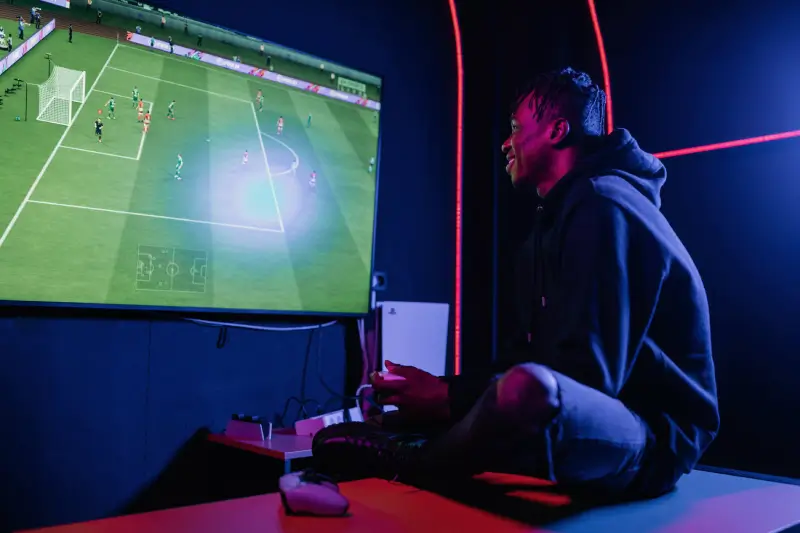
How Video Games Can Help Your Mental Health
Since they were invented, video games have gotten a bad rap. At best, many see them as just another distraction for kids who would be better off spending their time on more productive endeavors. At worst, they are viewed as being a catalyst
for violence that should be tightly controlled.
However, over the past couple of decades, video games have been shedding many of the stereotypes that led to their bad reputation. In fact, many health professionals have been promoting video games for both physical and mental healing.
While overindulging in them can be a great strain on your mental health, it is a problem that is not unique to video games and is sometimes overblown when compared to other mediums. With proper balance, playing video games is a great way to ease your mind and get a better handle of your mental health. Here are the four major ways that video games can help your mental health:
Entertainment and Escapism
The obvious way that video games are able to help your mental health is through entertainment. Like film and television, video games can be used as both something to relax to and take enjoyment from, something that everyone needs.
Ever since ancient times, we’ve told stories to entertain each other and used music and dance to relax. Entertainment is an important part of dealing with your mental health, finding something that relieves stress, boosts your mood, and helps you cope with the struggles that you’ve been going through. Video games are just another way of doing this, with its own unique qualities.
Something that makes video games unique is the sense of interactivity. Like a book, you’re able to directly control the pace at which you play a game, going as slow or as quickly as you’d like (depending on your abilities and the type of game
it is).
Moreover, video games can be like playing a sport, in which what you do will affect the outcome. Thus, they can be an exciting way to vent your frustrations or to get a rush of excitement that you’ve been needing. Alternatively, it can be a simple fun way to relax. Either way, video games can act as a relaxing mental stimulant.
However, for those who really need it, games can act as a great escapist fantasy to sink your teeth into. While books and film can act as escapes for a lot of
people, the interactive element of games can too. Games can have grand sweeping worlds that people can explore and spend a lot of time in or are able to create spaces where you can practically design your own world.
Escapism is a powerful thing, allowing you to completely disconnect from the struggles you’re facing and relieve your stress. But sometimes it can be too powerful and can prevent some from facing those struggles in the real world.
However, that isn’t a problem inherently tied to video games and more tied to flawed coping mechanisms. If kept balanced with your real-life responsibilities, video games are a great way to let yourself relax and get lost for a while, allowing
you to relieve stress and have fun.
Challenge and Accomplishment
While the primary purpose of games would seem to be to entertain, many would argue that the main focus should be engagement. There are many ways that video games engage us and one of them is the sense of accomplishment that they can bring. This can be from something simple like completing little tasks or beating a level, even if it’s something easy. Accomplishing something that’s easy does have a relaxing benefit to it.
However, the greatest sense of accomplishment that games can bring will often come from the more difficult ones. Going through a challenging game can sometimes be incredibly time-consuming, nerve wracking, and frustrating.
However, they can also be exciting, cathartic, and leave you feeling proud of yourself. Whether it be beating a hard level, completing a complex puzzle, defeating a tough enemy, or even playing through a horror game, overcoming those obstacles can be a mood booster that allows you to work your mental muscles.
Furthermore, some people who are already able to overcome those challenges can push themselves to be even better at the game, to play it competitively, get into speed running, or just to have as much fun with it as possible.
Learning to be able to do these things can not only bring a sense of accomplishment but also can provide career opportunities for some e.g. professional Esports players. This, of course, depends on the game, as some games are too easy or widely unfair.
Interactive Narrative
Video game director and creator Yoko Taro said: “You can even express movies and poetry using video games. For those reasons, I’ve decided to create stories through video games.”
Storytelling in general is an important part of our lives and is great for entertainment, mood boosting, and catharsis. Video games now have the ability to tell engaging stories, ones just as good as cinema and literature. However, games are able to approach storytelling in a way that no other medium can through its direct interactivity.
While some games do go for a more cinematic approach through complex scripts and cutscenes, games have the ability to tell their story through their gameplay and the worlds they create.
They can use the enemy designs and behaviors, the levels architecture and design, and even certain game mechanics and systems to set a mood and convey a greater narrative while you’re playing the game. It is something that may initially go unnoticed but can add a subconscious weight to the narrative that keeps you engaged.
This form of storytelling is something that makes games unique and allow it to be a viable avenue for people to engage with as something that can be mentally healing.
Sense of Community
While games themselves have the power to be mental health recovery options, the sense of community around them can be just as powerful, if not more so.
Community, friends and family, are all critical parts of one’s mental health as they give people the understanding that they aren’t alone in their struggles. Video games have the ability to bring people together.
They’re something you can play with friends and family for a night of fun or something you can play with complete strangers in a foreign country online.
Games are special to a lot of people and if they’re special to you, then it can be the catalyst for finding your people, ultimately helping you in your mental health journey.




